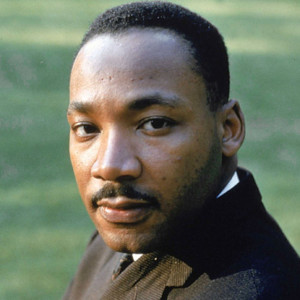 Almost 10 years ago, I arrived in St. Louis to interview for the Martin Luther King Jr. Scholarship at Saint Louis University. The scholarship had been around for two years, but this year was the first year the college was interviewing candidates before selecting scholarship recipients. The weekend was cold, in the teens, one of the coldest for St. Louis that winter. The water in the ponds next to the Cupples House was frozen over, an incredible sight for someone coming all the way from Hawaii to interview.
The MLK Jr. Scholarship is awarded to students "who are committed to the promotion of social justice in our society." Scholars are expected to uphold their commitment to diversity and social justice during their time at the university, as well as meet yearly GPA and leadership requirements. If I wasn't clear by now, I was awarded the scholarship and was expected to uphold this commitment during my four years at SLU and after graduation.
Almost 10 years ago, I arrived in St. Louis to interview for the Martin Luther King Jr. Scholarship at Saint Louis University. The scholarship had been around for two years, but this year was the first year the college was interviewing candidates before selecting scholarship recipients. The weekend was cold, in the teens, one of the coldest for St. Louis that winter. The water in the ponds next to the Cupples House was frozen over, an incredible sight for someone coming all the way from Hawaii to interview.
The MLK Jr. Scholarship is awarded to students "who are committed to the promotion of social justice in our society." Scholars are expected to uphold their commitment to diversity and social justice during their time at the university, as well as meet yearly GPA and leadership requirements. If I wasn't clear by now, I was awarded the scholarship and was expected to uphold this commitment during my four years at SLU and after graduation.
Diversity and Social Justice
Social justice is the view that everyone deserves equal economic, political and social rights and opportunities. I absolutely despise the phrase "social justice warriors" because the phrase conjures images of Twitter trolls and selfish individuals who are "activists in name only." Social justice is a good thing. Social justice worth working toward and ought to be promoted on a daily basis. A better term for a "social justice warrior" is "butthead." The term "social justice warrior" only makes it easier for people to dismiss actual social justice as a legitimate goal and perspective, especially in a world that so desperately needs it.
But, I digress.
Diversity is much more than racial diversity. It's much more than making sure your school, company or organization has "this person" or "that person." Diversity also includes religious diversity, gender diversity, intellectual diversity, hometown diversity (diversity of the location of one's upbringing) etc. As a white woman with a white name, I don't look or sound diverse (well, half white, but I look white to most people). Since being a MLK Scholar meant this commitment to diversity, I felt that a Native Hawaiian in the Midwest I could create diversity and contribute to the community in ways different from my peers and from those in the St. Louis area.
What Does It Mean to Be a Scholar?
I always understood SLU's motto to be "men and women for others." The motto could've changed in the years since I graduated, since the university now says its motto is "higher purpose, greater good." To me, being an MLK Scholar meant taking King's legacy and teachings beyond the Civil Rights Movement of the 60s. I think it means finishing the work he was unable to finish and doing the work that he would've been unable to get to even if he was still alive. King would've been a busy man in the decades afterward if he wasn't assassinated in 1968.
During my four years at SLU, being a Scholar meant active membership in the university's Amnesty International chapter. It meant yearly participation in SLU's Make a Difference Day every October and volunteering weekly as a tutor at a local high school. It meant being the one political science major who studied among the physics and engineering majors in Parks College. It meant being one of the few people from Hawaii at SLU. It meant being different was an asset, not a liability.
10 Years Later
Ultimately, being an MLK Scholar meant recognizing that privilege doesn't have to an institutional construct designed to hold others back with the exception of a few. Privilege is bestowed to the few as a responsibility to the many. With great power, comes great responsibility. I graduated from SLU debt free, and the scholarship contributed to that outcome. If graduating on time from a four-year private institution of higher learning debt free isn't privilege, then perhaps I don't really know what privilege is.
Nowadays, I uphold the commitment to diversity and social justice through my work with the Amnesty International St. Louis local group. Being an active member of Amnesty comes with its own set of responsibilities and helps me to have perspective on the full extent of my privilege. Martin Luther King Jr. once said, "Life's most persistent and urgent question is, 'What are you doing for others?"
It's also a question a scholarship program at a Jesuit university asks its potential candidates. Ten years ago, I didn't know much about Martin Luther King Jr. except what I learned in class and from our textbooks. Today, I think he has a continual, ever-changing legacy because what he stands for is timeless, yet timely.


